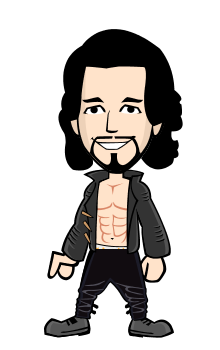The US is a great place to invest - just ask the Chinese.
Chinese investors have been putting their money in US companies, US real estate and recently US dating.
They aren't the only ones. In 2015 the US reclaimed its position as the top stop for foreign investors, knocking China back down to second place.
But the growing presence of Chinese investors in big US brands has fuelled some fears that China is taking over the US economy.
So could you spend a day in the US using only Chinese goods? The answer it turns out is yes... if you try.
ADVERTISEMENT
To test this idea, I set some ground rules: the product must be made in China or majority owned by a Chinese company/investor.
Image copyrightGetty Images
Clothes
To start my day off on the right foot I decided to wear clothes that were made in China.
This proved to be more difficult than I expected. A lot of my clothes were made in Vietnam - something likely to increase if the Trans-Pacific Partnership kicks in. The deal would allow goods from Vietnam and other countries on the Pacific, but not China, to be imported to the US tariff-free.
Image copyrightGetty Images
Breakfast
Coming up with a Chinese breakfast was pretty easy without turning to dumplings or noodles. Bacon!
Smithfield Foods, the world's largest pork producer, was purchased by China's Shuanghui International in 2014 in the largest Chinese takeover of a US company to date.
Shuanghui paid $4.7bn (£3.3bn) for the Virginia-based company.
Americans struggled to cope with the idea that their ham, bacon and sausage would have a Chinese owner. The deal faced regulatory challenges and questions about food safety from Congress, but eventually went through allowing me to make "Chinese" breakfast right in my own kitchen.
Image copyrightGetty Images
Technology
There are a few very obvious pieces of Chinese gear in my apartment, namely my iPhone and iPad.
Apple has come under scrutiny in recent years for the scale of its manufacturing in China and the conditions faced by workers.
A 2012 study by Syracuse University pointed out that most of the iPhone is developed in the US. The research, software development, patenting and marketing are for the most part based in the United States, meaning that's where the bulk of the profits return.
There is no denying, though, that the physical phone is manufactured in China.
Chinese accomodations
Apple's flagship New York store on the southeast corner of 59th Street and 5th Avenue is just a few streets away from one of the largest Chinese investments in New York - the Waldorf Astoria.
The iconic hotel was purchased by Beijing-based Anbang Insurance Group in 2014 for $1.95bn.
Image copyrightGetty Images
The Waldorf has hosted every US president since Herbert Hoover in 1933. But the US State Department has suggested it is considering putting US diplomats up in a different hotel since the Waldorf was purchased by Anbang.
A room in the art-deco hotel offers spectacular views of Central Park, but it can cost over $600 a night.
For a journalist already living in New York, venturing into the hotel's Bull & Bear Bar is a little easier to manage.
Chinese dating
It's also a great place to convince a friend to let you play with the Grindr app on his phone.
Chinese gaming company Kunlun Tech paid $93m for a majority stake in Grindr in January. The gay dating app reported having three million daily active users in November 2014.
Like the average Grindr user, I spent close to 30 minutes on the app trying - and in my case failing - to connect my friend with someone I deemed suitable.
Off to the movies
Next on our list of Chinese activities was going to see a film.
Popcorn and a Coke at the cinema may seem pretty American, but going to an AMC movie theatre allowed us to follow the day's pre-set rules.
Chinese company Dalian Wanda Group bought the cinema chain in a $2.6bn takeover deal in 2012. The purchase has not led - as some at the time suggested - to vast censorship at US theatres.
To our great disappointment though, we were unable to see a film by Legendary Entertainment - the production company that Wanda recently paid $3.5bn in cash for.
Legendary is the company behind the movies Jurassic World and Steve Jobs. On the day we went none of its films were playing.
Wanda's chairman, the Chinese billionaire Wang Jianlin has made clear the company would consider making further purchases in the film industry including potentially buying a larger production company.
"We want to have a bigger position in the global movie industry," Wang said at a news conference announcing the purchase of Legendary.
So maybe next time we can see a Chinese-owned movie in a Chinese-owned theatre without leaving the United States.
Made in China v Made in USA
Spending the day trying to use Chinese products pointed out just how difficult that challenge can be.
A trip around a large US retailer shows exactly why that is. Toys and electronics are inevitably dominated by "Made in China" labels, but moving across clothes, household good and cosmetics, there are a number of other importing countries and domestic labels.
Even cultural areas, like gaming and movies, where recent purchases have highlighted China's growth, the impact in America is still limited.
The global economy is in fact global - international investors, global supply chains, free trade deals all make the idea that one country is taking over a little messier.
The "Made in USA" label has not disappeared and China has not taken over - it is just establishing its place as a major player in a global economy.



